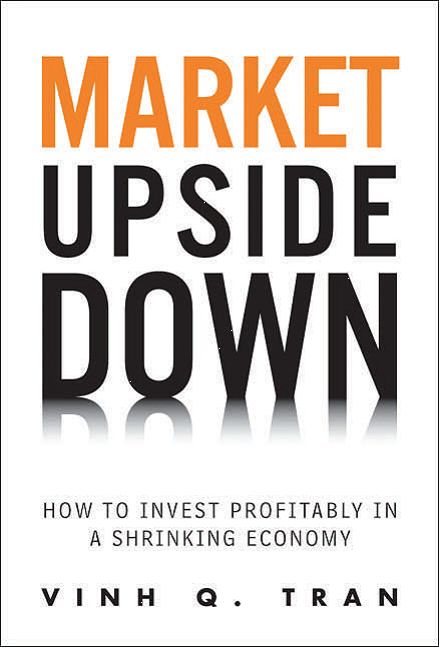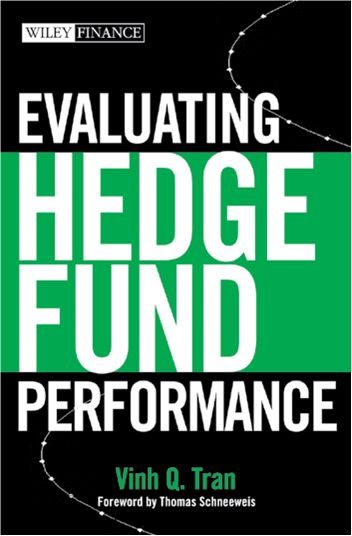15/12-10 at 21.29 Vinh Q. Tran
December 15, 2010 – On November 3, the Fed announced after its policy setting Federal Open Market Committee meeting that it was launching the second phase of quantitative easing, with purchases of up to $600 billion in Treasury bonds through the first half of 20111.
Although QE2, as it is referred to, is much less than the first round of $1.75 trillion between 2009 and 2010, the Fed’s latest move came to immediate criticism from all circles.
Apart from the tenth District Federal Reserve Bank President Thomas Hoenig who dissented, Governor Kevin Warsh warned of “significant risks” including the potential of leading to excessive inflation. He also doubted the program would create “significant” or “durable benefits” for the economy. Comments from European capitals were particularly harsh. "What the U.S. accuses China of doing, the U.S.A. is doing by different means," said German Finance Minister Wolfgang Schaeuble. French Finance Minister Christine Lagarde said in an interview with the Wall Street Journal a couple of days later that the fresh quantitative easing would inevitably result in an appreciation of the euro.
Brazilian Finance Minister ...
31/8-10 at 12.04 Vinh Q. Tran
August 31, 2010 – In a stunning reversal, investors have been taking money out of stock mutual funds! Is that so? In a recent front page article, the New York Times headlined “In Striking Shift, Investors Flee Stock Market.”
Citing data from the Investment Company Institute, the article observed, “Investors withdrew a staggering $33.12 billion from domestic stock market in the first seven months of this year.” It went on, “Renewed economic uncertainty is testing Americans’ generation-long love affair with the stock market.” “Small investors are ‘losing their appetite for risk,’” a well known strategist chimed in, as quoted in the article.
Not so fast. Concurrent with taking money out of domestic equity funds, individual investors have re-entered foreign stock markets, starting in April 2009, right after the market bottom in March. Since then investors have steadily upped their ante in foreign equities, except for an outflow of $5.6 billion in May this year, according to the Investment Company Institute. For the first quarter of 2009, investors withdrew $16.6 billion from foreign stock funds ...
15/8-10 at 18.00 Vinh Q. Tran
August 15 – After strong rallies of over 2% on the first trading day of August, major stock indices have managed to retain their gains, riding through the miserable July payroll reports, and turning the S&P 500 from a loss into a gain of 0.5% year-to-date. Yet, the labor statistics again highlighted the bleak employment outlook and continuing lack of jobs for the rising ranks of the unemployed. Overall, the nation lost 131,000 non-farm jobs in July, with 202,000 cut in government payroll. The loss of 48 thousand jobs in state and local governments surprised economists. The gains in private sector jobs of 71 thousand were pitiful, just a bit over half of what is needed to keep pace with population growth; to reduce unemployment the U.S. needs to gain at least 200,000 jobs a month consistently.
The poor payroll reports surprised even optimistic economists. “No question about it, the three-month average of adding 50,000 jobs is disappointing versus almost anybody’s expectations,” said Robert J. Barbera, chief economist of Mount Lucas Management, who has said that ...
03/8-10 at 09.43 Vinh Q. Tran
August 3 – The temperature soared to oppressive levels but stocks enjoyed a great month. In July, the S&P 500 surged 7%. Except for the bounces from the March 2009 bottom, it has been years since the market saw such elevated returns. A casual observer could understandably conclude that all is well on the mend for the economy.
Even the spate of statistics pointing to a weak recovery and increasing odds of a double dip and deflation has so far failed to stop the rally. To top it off, equities staged a strong gain of over 2% on the first trading day of August, riding on the falling dollar, higher energy prices and strong price action from Europe. Aiding the upbeat tone, the ISM index showed a larger-than-expected gain for July.
However, trading volume was low on this day, only 7.6 billion shares, well below last year’s estimated average daily average of 9.6 billion.
When the market is thin with traders and money managers taking vacation from the heat of summer, a bit of good ...
16/7-10 at 15.46 Vinh Q. Tran
July 16, 2010 – The stock market has been experiencing severe mood swings, going up and down from one day to the next. After reaching the highest levels since the bottom last March, the key market indices crashed into bear market territories in May and June upon discovery of the not-so-secret fiscal mess of the PIIGS countries. (It took video shots of street protests, bank burning, and people killed for global equity markets to notice that Greece has long been insolvent!) Since then, stocks have alternated between strong rallies and sharp declines, cheered on by pundits on public TV, and beat-the-estimates earnings announcements of market favorites like Apple, only to feel depressed by lousy economic statistics, as if the bleak economic outlook is a surprise.
To be fair, what else is there for pundits to say to attract stock buyers? After all, credit is cheap, (if you can get it and only big banks have ready access to it for their proprietary trading, courtesy of the Fed), bond yields are near all-time lows, and Fed funds are virtually zero. “It’s the ...
07/7-10 at 21.17 Vinh Q. Tran
July 6, 2010 – A review of Market Upside Down by Madan Sabnavis in Businessworld.
The Money Manager’s Trapeze -- Vinh Q. Tran focuses on how to preserve capital value while lowering risk factors to earn money when the markets are “upside down”.
Predicting the future is hazardous, besieged as it is with mistaken signs and distorted rear view mirrors, made foggier with the passage of time and emotion. These words of Vinh Q. Tran summarise the substance of his book as he guides investors into doing the right thing with their money even in the wrong times.
In Market Upside Down, Tran’s attention is directed primarily to those who may be saving for post-retirement and would like to preserve their capital value and earn something above it. More importantly, they would like to lower their risk as much as possible. The focus is, hence, on how to ...
22/6-10 at 15.23 Vinh Q. Tran
June 22 – It is difficult to think of the U.S. experiencing a deflationary cycle like in the 1929 depression, or a la Japan in the last two decades, with its devastating impacts on economic growth and wealth of the nation.
However, as I noted in the previous entry Manic Depressive, CPI ex. food and energy has been decelerating. Since December 2008, core CPI has risen at less than 2% year-on-year. A small pick-up toward the end of 2009 with the approaching Christmas season gave way to a rise of only 1.48% in January 2010, from 1.8% in the preceding December. Last month, it rose only 0.97%, slipping from 1% in April*. This rate is well below the Fed’s informal target of 1.5% to 2%, while interest rates are at near-zero and, according to some, the equity market is in a bull run, presumably because the economic recovery is viewed to be on track.
CPI rose at a declining rate that averaged 1.6% between 2003 and 2004, in the aftermath of the 2000 to 2002 recession. However, as the ...
31/5-10 at 13.15 Vinh Tran
May 31, 2010 – “Sell in May and go away,” so goes the adage about stock market doldrums in summer. Better to sell in May and wait for better market conditions comes fall.
Let’s hope the cooler weather will drive away the manic depressive state of the equity market seen this month.
Starting with promises on the first trading day of May, and poised to make new highs since the rally started in March last year, the market’s follow-up was hardly more disappointing. In subsequent days, early advances on openings quickly reversed, and gains on one day were erased the next. The debt crisis in Greece was the first to be fingered for the violent moves, followed by rumors of massive trading errors on May 6 that were supposed to prompt the Dow to lose 1,000 points in a matter of minutes. Yet the market found little comfort in the $1 trillion EU bailout for the benefits of the spendthrift Greeks and lack of evidence for the alleged trading mistakes. By the last trading day, the loss in May had wiped out ...
10/5-10 at 08.54 Vinh Q. Tran
May 7, 2010 – “Confidence may be replaced by recognition and fear of even darker days ahead. Without confidence and optimism, the values of the stock certificates will simply evaporate.“
I wrote those words more than six months ago for the introduction to Market Upside Down. In the last few days, as throngs of Greeks took to the streets –as they have done in the past for causes noble or otherwise-- to protest their government’s spending cuts, newspapers screamed out with such headlines as “U.S. markets plunge,” or “Greece fuels fears of contagion in the U.S.”
In one week of chaotic trading, the Dow Jones Industrial Average gave up all the gain that it had painstakingly built up since the beginning of the year. Such has been the typical reaction of markets advancing on mere confidence and optimism. One gentle push and the house of cards unravels.
For in the scheme of the world economy, Greece is a small country. Its GDP is about one-tenth of Germany’s, and is little more than half the size of the retirees’ state of Florida’s. ...
23/4-10 at 11.25 Vinh
April 6, 2010 -- My mind has been full of bright thoughts in the last few weeks. I think about the possibilities of a world at peace, a strong economy with plenty of jobs for young and experienced people alike and most of all, mornings of sunshine and warm air and little kids running around. Have I too much time on my hands or gone senile? Well, my daughter is getting married to a nice young man and they make a handsome couple full of hopes and plans for their future. So, I join them in their dreams and hopes and indulge myself in these thoughts. However, I know soon I will have to get back to reality and face up to the risks of bubbles that are brewing in the global stock markets amid forecasts of economic recoveries at breakneck speeds both at home and leading emerging markets like China. In the U.S. the strong GDP growth forecasted for the first quarter following a strong fourth quarter now have lulled many pundits to believe that the bounces ...


